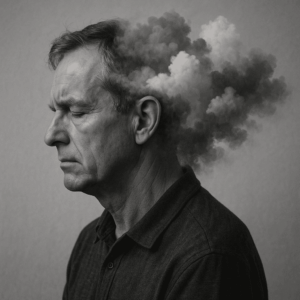The Fate of Delusions: Clinical and Conceptual Perspectives
Delusions, defined as fixed, false beliefs not amenable to logic or contrary evidence, are a central phenomenon in psychiatry. While much of the literature focuses on their origins and phenomenology, clinicians are equally confronted with an important question: What is the fate of delusions over time? Understanding their trajectory has significant implications for prognosis, treatment planning, and the lived experience of patients and families.
The Clinical Course of Delusions
The trajectory of delusions is neither uniform nor predictable. Several broad patterns have been described:
-
Resolution
In some cases—particularly in acute psychotic episodes associated with substance use, delirium, or mood disorders—delusions may remit completely with resolution of the underlying condition. Here, the delusion leaves little trace, and insight may return once the acute phase subsides. -
Partial Remission
Delusions may soften over time, becoming less intense or more questionable in the patient’s mind. A person may acknowledge that “maybe I was mistaken” or maintain the belief with less conviction. Clinically, this often occurs with treatment response or through natural illness course in remitting–relapsing disorders. -
Persistence
In chronic psychotic disorders such as schizophrenia, delusions often persist for years, if not decades. Their content may evolve, but the underlying conviction remains. Persistent delusions can significantly affect quality of life, occupational functioning, and social integration. -
Transformation
Occasionally, one delusional theme fades and is replaced by another. For example, persecutory ideas may give way to grandiose or somatic delusions. This transformation may reflect shifting psychological needs, neurobiological changes, or cultural influences.
Psychological Afterlife of Delusions
Even when a delusion fades, its psychological impact often lingers. Patients may look back with embarrassment, guilt, or even nostalgia. Some reinterpret the delusion as a “spiritual experience,” while others avoid discussing it altogether. Importantly, families may struggle to reconcile the period of delusional intensity with the patient’s premorbid or recovered personality.
Prognostic Implications
The fate of delusions has close ties to prognosis:
-
Good prognostic signs include acute onset, mood-congruent content, and good premorbid functioning.
-
Poor prognostic signs include early age of onset, bizarre or systematized delusions, and poor response to antipsychotics.
-
Delusion persistence often predicts chronicity, functional decline, and caregiver burden.
Therapeutic Considerations
Clinicians must adapt their approach depending on the stage of the delusion:
-
Acute phase: safety, antipsychotic medication, gentle reality testing.
-
Subacute phase: supportive therapy, psychoeducation, family involvement.
-
Chronic delusions: emphasis shifts to acceptance, harm reduction, and improving quality of life, rather than full resolution.
Cognitive-behavioral therapy for psychosis (CBTp) has shown promise in modifying conviction, distress, and preoccupation even when the delusion does not fully disappear.
Broader Reflections
The fate of delusions also raises philosophical and cultural questions. At what point does a delusion become indistinguishable from a culturally sanctioned belief? Can a delusion, once discarded, leave behind constructive meaning or personal growth? These questions remind us that delusions are not merely symptoms but lived experiences, interwoven with identity, memory, and culture.
Conclusion
The fate of delusions is diverse: some fade into the past, others transform, and many persist across a lifetime. For clinicians, the challenge is not only to alleviate the intensity of delusional conviction but also to address the enduring psychological and social impact. For patients and families, recovery often lies not in erasing the delusion but in reclaiming agency, connection, and dignity in its aftermath.
👉 I offer psychiatric consultations and psychotherapy at Apollo Clinic, Velachery (Chennai). If you would like to discuss mental health concerns for yourself or a loved one, you can reach me.
Dr. Srinivas Rajkumar T, MBBS, MD (AIIMS, New Delhi)
Consultant Psychiatrist – Apollo Clinic, Velachery (opposite Phoenix Mall)
Specialist in stress, anxiety, depression, addiction, and ADHD care
Provides evidence-based treatment with psychotherapy and family support
📞 Appointments: 8595155808
